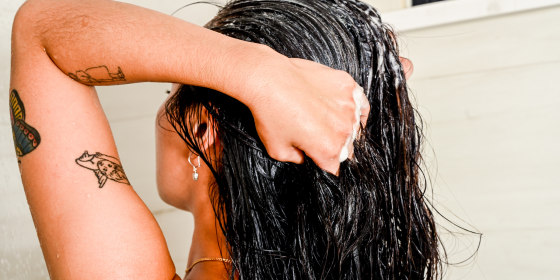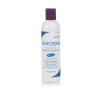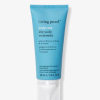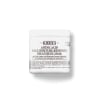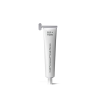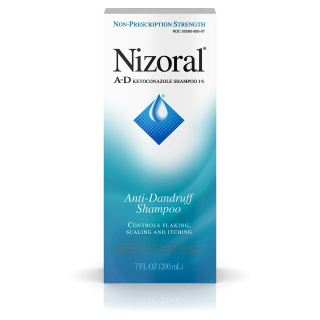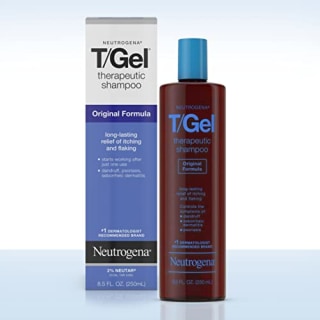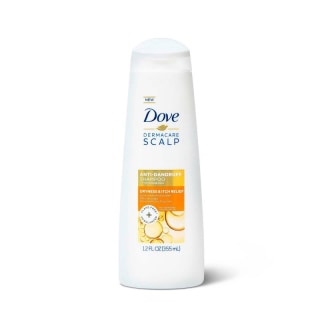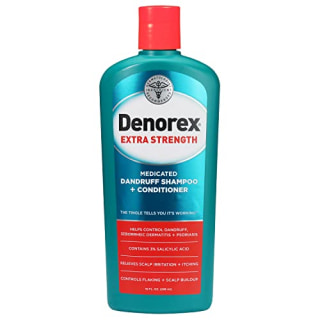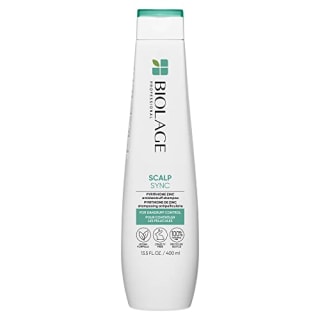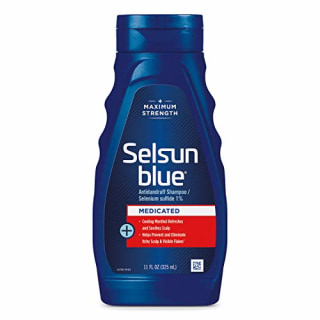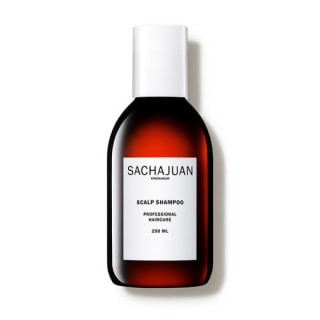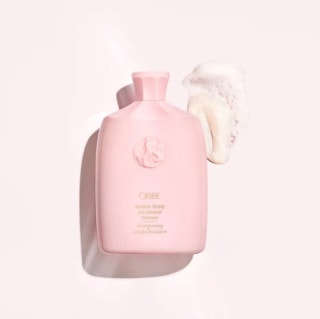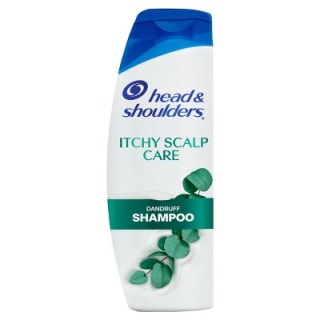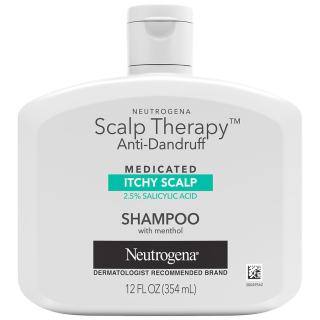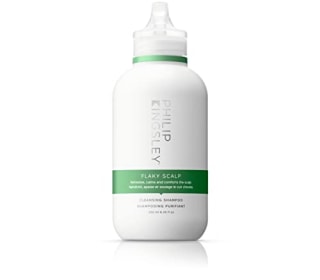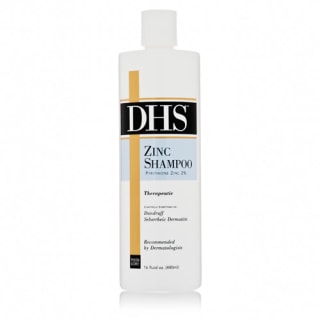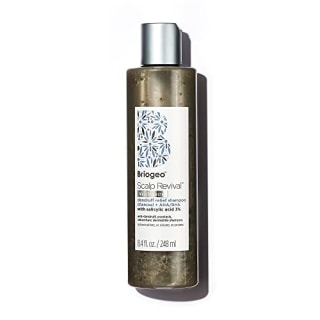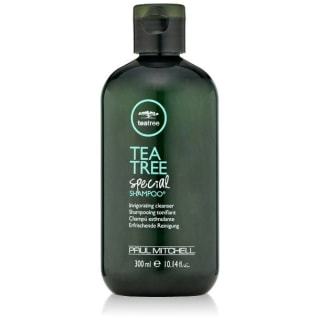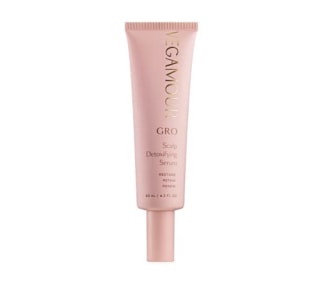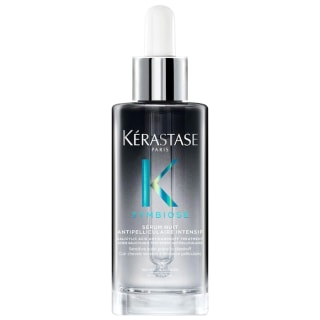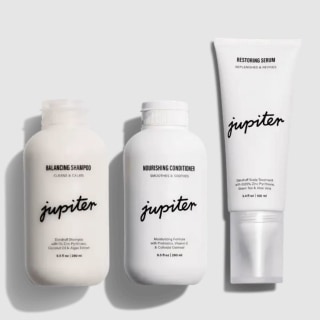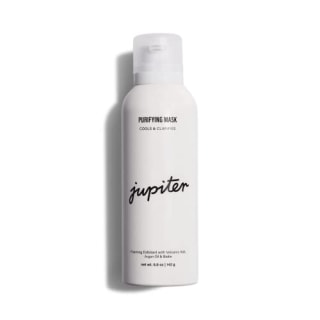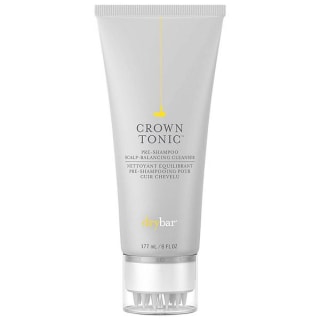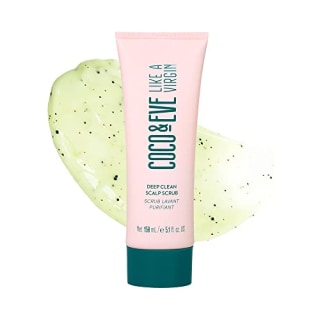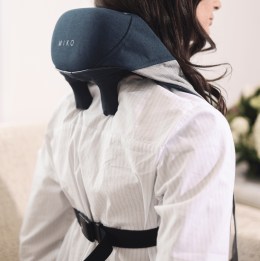There are enough problems to deal with when it comes to your hair. But when said problem is dreaded dandruff, it's easy to get overwhelmed. This condition, which often manifests as those small, white flakes that linger on your scalp, is very common — but it can also be hard to treat.
So if you're wondering how to get rid of dandruff (and learn more about dandruff in general), look no further. We tapped two scalp experts — a board-certified dermatologist and a master esthetician — to tell us what we need to know about the condition and identify the best dandruff treatment.
What is dandruff? | What causes dandruff? | Ingredients to look for | Best Amazon faves | Best budget | Best with pyrithione zinc | Best with selenium sulfide | Best with salicylic acid | Best for itching | Best for oily scalps | Best for dry scalps | Best scalp serums | Best anti-dandruff sets | Best anti-dandruff masks | Best pre-shampoo | Best exfoliators | FAQs | How we chose | Meet our experts
Wait, what exactly is dandruff?
You may know this condition as one that commonly affects the scalp, but dandruff can also occur in eyebrows, chest hair, the groin area or armpits. It causes the skin of the scalp to become itchy; the scalp then starts to shed flakes of dead skin cells shortly after.
Those flakes are a result of a normal process going into overdrive. It's natural for your skin to constantly replace its cells, pushing old ones outward to where they die and flake off. These flakes are typically small and unnoticeable — but dandruff causes skin cells to replace themselves more rapidly than they would during a normal cycle. Read: oily, larger clumps that can become visible.
Other tell-tale signs of dandruff include red and greasy patches and a tingly feeling on the skin. You may also feel dryness, tightness or irritation on your scalp.
“Dandruff can also make the scalp become swollen or inflamed. You should also seek medical attention should this occur,” master esthetician Julie Matsushima tells us.
So, what causes dandruff?
“The most common cause of dandruff is seborrheic dermatitis or sometimes called seborrhea,” says Matsushima.
But dry skin, sensitivity to specific hair products and skin conditions like eczema or psoriasis can also make you more susceptible to having dandruff. Many hair experts also believe that the common fungus Malassezia can trigger dandruff, according to Matsushima.
“Malassezia increases skin cell growth, and these extra skin cells die and flake off,” she explains.
Diet could also play a role, as a deficiency in vitamin B or zinc can lead to dandruff, Matsushima adds.
Now that you know more about this common scalp condition, read on (or use the links below) to find out what ingredients you should look for in the best anti-dandruff products.
What ingredients should I look for in an anti-dandruff treatment?
Matsushima says that products with pyrithione zinc are popular for treating dandruff because it contains anti-bacterial and anti-fungal properties. She also recommends coal-based products (to slow down the growth of skin cells), those with selenium sulfide (to slow skin cell growth and reduce Malassezia) and ones with salicylic acid (to exfoliate the scalp). The above active ingredients, along with 2% to 5% sulfur are the only ones currently approved by the Food & Drug Administration for the control of dandruff.
Since no one hair solution will immediately cure your dandruff, it's smart to switch things up every once in a while to keep your flakes at bay, according to Dr. Alan Parks, a board-certified dermatologist and founder of DermWarehouse.
"It’s good to rotate between different ingredients and not use the same all the time, otherwise you’ll build up a tolerance to the ingredient," he says. With this in mind, we highlighted the key ingredients each of our recommendations below use to help address your scalp concerns.
Best Amazon-favorite dandruff shampoos
Nizoral Anti-Dandruff Shampoo
Key ingredient: 1% ketoconazole | Usage: Twice a week | Size: 7 fl oz | Best for: Dandruff from fungus or yeast, chronic dandruff
There's a reason this shampoo is Amazon's No. 1 bestseller in both the two-in-one shampoo and conditioner and the Hair Shampoos product categories, amassing over 63,000 verified five-star ratings — the results speak for themselves, according to reviewers.
This shampoo controls flaking and itching associated with dandruff, thanks to the key ingredient ketoconazole. The formula contains 1% strength of the anti-fungal medicine, the concentration typically used to treat this hair condition.
Plus, because it's only meant to be used twice a week, the bottle will last you a while, users add.
Vanicream Free & Clear Anti-Dandruff Shampoo
Key ingredient: 2% pyrithione zinc | Usage: Twice a week | Size: 8 fl oz | Best for: Dandruff caused by seborrheic dermatitis, sensitive scalps
Vanicream's anti-dandruff shampoo uses FDA-approved pyrithione zinc as its active ingredient. This powerful but gentle shampoo can tackle more intense flaking while not drying out your hair and scalp, thanks to its irritant-free and pH-balanced formulation.
Neutrogena T/Gel Therapeutic Shampoo Original Formula
Key ingredient: 0.5% coal tar | Usage: Twice a week to daily | Size: 8.5 fl oz | Best for: Chronic scalp psoriasis, seborrheic dermatitis, common dandruff
The shampoo is formulated to manage the common symptoms of dandruff, seborrheic dermatitis and psoriasis (in fact, it was acknowledged by the National Psoriasis Foundation, per the brand). And not only is it said to work immediately upon contact, but this gentle shampoo will keep working hours after being washed off, according to the brand. Plus, it comes in various sizes, including travel.
Best budget anti-dandruff shampoos
Dove DermaCare Scalp Anti-Dandruff Shampoo
Key ingredient: 1% pyrithione zinc | Usage: Twice a week | Size: 12 fl oz | Best for: Dry scalps, frizzy hair
In addition to the 1% zinc in its formula to fight flakes and itch, Dove's anti-dandruff shampoo is also mild and pH-balanced, and has shea butter and coconut in its ingredient list, so it will feel good on dry or sensitive scalps. Plus, it's safe for color-treated hair and is said to also smooth frizz.
Denorex Extra-Strength Dandruff Shampoo
Key ingredient: 3% salicylic acid | Usage: Twice a week | Size: 10 fl oz | Best for: Symptoms of dandruff, scalp seborrheic dermatitis and psoriasis
Denorex's two-in-one solution uses the active ingredient salicylic acid (in the maximum concentration approved by the FDA) to fight the symptoms common with dandruff; not only that, but it also helps prevent their recurrence, according to the brand. Reviewers also report loving the tingling, cooling sensation that comes with use.
Plus, thanks to the extra vitamins (like vitamin E) and built-in conditioner, it should help smooth and nourish your hair at the same time. Just note that, according to some users, just a little of the solution will create more than enough lather.
Best dandruff shampoo with pyrithione zinc
Biolage Scalpsync Anti-Dandruff Shampoo
Key ingredient: 1% pyrithione zinc | Usage: Twice a week | Size: 13.5 fl oz | Best for: Deep cleaning of scalp buildup, dandruff-related itching and flaking for all hair types
Crafted with pyrithione zinc, this Biolage shampoo will leave your scalp balanced, your tresses minty fresh and your visible flakes under control. According to several verified Ulta and Amazon shoppers who've rated this five stars, you'll start seeing results after your first wash.
Plus, the scent is minty but delicate for those who are sensitive to strong smells. And, it's safe for color-treated hair.
Best dandruff shampoo with selenium sulfide
Selsun Blue Medicated Maximum Strength Dandruff Shampoo
Key ingredient: 1% selenium sulfide | Usage: Twice a week | Size: 11 fl oz | Best for: Tackles dandruff symptoms like flaking and itching, all hair types
This Selsun Blue shampoo is designed to prevent seborrheic dermatitis and leave you with healthy-looking hair. Selenium sulfide is the active ingredient to help control the itching and flaking of serious dandruff, and this comes with 1%, the maximum concentration approved by the FDA. We're also a fan of the accompanying cooling sensation and pleasant eucalyptus scent.
This is also one of a handful of dandruff shampoos that several reviewers note does not dry their hair out (with some adding that it gives their mane body and softness).
Best dandruff shampoos with salicylic acid
Sachajuan Scalp Shampoo
Key ingredients: Salicylic acid (percentage not listed), piroctone olamine, climbazole | Usage: Unlisted (we recommend twice weekly) | Size: 8.4 fl oz | Best for: Dry, flaky and irritated scalps
This Sachajuan shampoo is designed to remove dandruff while soothing an irritated scalp to ensure a healthy moisture balance; that’s mainly thanks to active ingredients piroctone olamine and climbazole, which, though not currently FDA-approved, are commonly used to treat antifungal infections like dandruff. It’s also made with ingredients like rosemary oil, ginger extract and salicylic acid, which work together to calm and balance your scalp.
Reviewers agree that it helps clear their dandruff without leaving their hair dry and brittle.
Ouai Anti-Dandruff Shampoo
Key ingredient: 2% salicylic acid | Usage: Twice a week | Size: 10 fl oz | Best for: Dry scalps, dandruff-related flakes and inflammation
The social media-loved brand Ouai now has a gentle shampoo specifically made to fight dandruff, thanks to a 2% salicylic acid formula. According to a clinical study conducted by the brand, 100% of participants saw fewer flakes, a healthier feeling scalp and reduced itchiness and irritation.
Bonus: It also has nourishing vitamin E in its formulation, and several reviewers report loving the smell, how well it lathers, and how soft it leaves their hair.
Oribe Serene Scalp Anti-Dandruff Shampoo
Key ingredient: 2% salicylic acid | Usage: Twice a week | Size: 8.5 fl oz | Best for: All hair types and textures; dry, flaky and irritated scalps
This Oribe shampoo is gentle while still containing a strong percentage of salicylic acid to prevent dandruff and soothe a dry, itchy scalp. Bonus ingredients include sugar maple and bilberry fruit extracts, which are said to both calm your scalp and help protect it from free-radical damage.
The shampoo is also made without parabens, sulfates or sodium chloride, and it’s color- and keratin-safe. And if all that’s not enough, the fragrance is dreamy: It “features sun-drenched notes of Calabrian bergamot, white butterfly jasmine and sandalwood,” according to the brand
Best dandruff shampoos for itching
Head & Shoulders Itchy Scalp Care Dandruff Shampoo
Key ingredient: 1% pyrithione zinc | Usage: Twice a week to daily | Size: 20.7 fl oz | Best for: All hair types, soothing itchy scalps, controlling flakes
A household name when it comes to dandruff, Head & Shoulders' dedicated anti-dandruff shampoo uses 1% pyrithione zinc to keep flakes at bay while soothing itch and irritation. Plus, users report that it actually leaves their hair smelling good and looking and feeling clean. Bonus: Those sporting beards prone to dandruff say it works well for that as well.
Neutrogena Therapy Itchy Scalp Shampoo
Key ingredient: 2.5% salicylic acid | Usage: Twice a week | Size: 12 fl oz | Best for: All hair types to control symptoms of dandruff, seborrheic dermatitis and psoriasis
Formulated with a quite-high concentration of salicylic acid alongside cooling menthol, this shampoo by Neutrogena is said to start working at first use (and several reviewers agree). In addition to controlling dandruff symptoms and imparting a cooling sensation, the brand says that the formula helps to balance your scalp’s moisture levels, which in turn helps prevent the condition’s recurrence.
Philip Kingsley Flaky Scalp Shampoo
Key ingredients: Piroctone olamine, cocamidopropyl betaine | Usage: Daily | Size: 8.45 fl oz | Best for: All hair types, for sensitive scalps with buildup and dandruff-related irritation
Made specifically for coarse or fine hair, this shampoo from Philip Kingsley helps relieve the scalp of flaking and buildup. Plus, its formulated by the brand's trichologists, or scalp specialists, so you know this was formulated with care.
One person likes that this shampoo is as gentle as it's advertised: "I have fine, long hair and this shampoo doesn't seem to strip the roots or leave my hair tangled," they shared.
Best dandruff shampoos for oily scalps
DHS Zinc Shampoo
Key ingredient: 2% pyrithione zinc | Usage: 2 to 4 times a week | Size: 16 fl oz | Best for: All hair and scalp types, especially oily or sensitive ones, with dandruff symptoms
This shampoo cleanses and conditions the scalp and maintains the skin’s pH level to keep irritation at bay. Made with pyrithione zinc, the brand boasts instant relief starting with the first use — while being gentle enough for even "the most sensitive of users." Plus, if you're someone who's sensitive to smells, this one is very mild, some users say.
Briogeo Scalp Revival Dandruff Relief Charcoal Shampoo
Key ingredient: 3% salicylic acid | Usage: 2 to 4 times a week | Size: 8.4 fl oz | Best for: Oily, flaky scalps
Dry, flaky scalps will appreciate the deep, gentle cleanse that comes with this Briogeo shampoo, which uses key ingredients like maximum-strength salicylic acid, lactic acid and binchotan charcoal to eliminate product buildup, excess oil production and dirt on your scalp, while still being extra-gentle on your tresses.
Best dandruff shampoo for dry scalps
Paul Mitchell Tea Tree Special Shampoo
Key ingredients: Tea tree oil, cocamidopropyl betaine | Usage: Unlisted | Size: 10.14 fl oz | Best for: All hair types, especially oily hair and dry scalps that struggle with symptoms of dandruff
Reviewers say this shampoo is super hydrating for scalps struggling with dandruff symptoms. The formula isn't medicated, but it does use tea tree oil, which has natural antibacterial and antifungal properties, to help tackle mild to moderate symptoms of dandruff. The cocamidopropyl betaine in the ingredients also helps cleanse the hair and scalp more thoroughly.
An additional perk, according to reviewers: It has a very pleasant scent and a soothing tingle, and leaves their locks shiny and frizz-free.
Best scalp serums for dandruff
Living Proof Scalp Care Dry Scalp Treatment
Key ingredient: Vitamin B3–based microbiome-balancing complex | Usage: 3 times per week for 4 weeks | Size: 3.4 fl oz | Best for: All hair types, dry scalps with itching, flaking and redness
Formulated as a leave-in treatment, this Allure Best of Beauty award-winning scalp product provides “instant hydration and lasting relief,” according to the brand. The key ingredients are a hyaluronic acid-based molecular patch to hydrate a tight, dry scalp, as well as a vitamin B3-based microbiome-balancing complex that the brand says “support the beneficial microorganisms on your scalp by rebalancing its natural ecosystem.”
Vegamour GRO Scalp Detoxifying Serum
Key ingredients: Zinc, vegan silk protein | Usage: Once a week | Size: 2 fl oz | Best for: All hair and scalp types
Designed to be used once weekly, this treatment boasts a formula made with vegan silk protein and other clinically tested plant- and mineral-based active ingredients that "gently remove buildup [from the scalp] while providing a semi-permeable moisture barrier, protecting it from harmful environmental pollutants," and absorb excess oils while boosting moisture. In fact, based on a clinical study of 24 participants, the brand says you'll see results in as little as three days, just like more than half of those participants did.
Reviewers on the brand's site rave about how clean their scalp feels and how it's helped with their scalp issues.
Kérastase Simbiose Anti-Dandruff Night Serum
Key ingredient: 1.8% salicylic acid | Usage: 1 to 4 times daily | Size: 3.4 fl oz | Best for: All hair types, dry flaky scalps from dandruff
This new product from Kérastase's anti-dandruff Simbiose line is designed to be used at night, so you can sleep knowing the serum is doing its work. The secret ingredient is 1.8% salicylic acid, which helps tackle scales and flaking, all while glycerin and other moisturizing ingredients still help keep hair shiny and hydrated without feeling crusty, as dozens of reviewers on the brand's site and Sephora report.
Best shampoo and conditioner set for dandruff
Jupiter The Triple Threat Set
Key ingredient: Pyrithione zinc | Usage: Shampoo: 3-4 times a week; conditioner: daily; serum: 1-4 times a day | Size: 9.5 fl oz (shampoo), 9.5 fl oz (conditioner), 3.4 fl oz (serum) | Best for: All hair types, dry scalps with flaking and itching from mild-to-moderate dandruff
This three-piece set by Jupiter is indeed a triple threat: The kit includes the brand's most-rated and best-selling (and often sold out) Balancing Shampoo; the gentle and hydrating Nourishing Conditioner; and the more mildly medicated and soothing Restoring Serum.
While each product can stand alone, the brand says the three are meant to complement each other: The shampoo controls dandruff's symptoms with 1% pyrithione zinc (and is even said to decrease hair breakage by up to 30%), while the serum uses a considerably smaller concentration so you can use it daily to manage milder symptoms. The conditioner is formulated to, indeed, nourish: It contains colloidal oatmeal to soothe irritation and probiotics to help balance your scalp's microbiome — and reviewers say that it leaves their hair shiny and soft, a nice bonus.
Plus, TODAY readers can score an extra 20% off sitewide with exclusive discount code TODAY20!
Best hair masks for dandruff
Kiehl's Amino Acid Moisture-Restoring Scalp Treatment
Key ingredient: Amino acids, coconut oil | Usage: Once a week | Size: 8.4 fl oz | Best for: All hair types, dry and sensitive scalps with disrupted skin barrier
Dryness and flakiness can also indicate a damaged or weakened scalp barrier. This amino acid-coconut oil mask from Kiehl's aims to both counteract the discomfort from those symptoms and restore moisture to the scalp. The amino acid blend in the formula, when combined with fatty acids like those found in coconut oil, deeply cleanses and moisturizes the scalp, according to the brand. This, in turn, leaves an environment that encourages healthier, smoother and softer hair.
Reviewers agree, with dozens reporting reduced itching, flaking and burning, as well as softer and more voluminous-looking hair. Plus, many who have fine or thin hair say it doesn't way their locks down.
Jupiter Balancing Purifying Mask
Key ingredient: Volcanic ash, biotin | Usage: 1 to 2 times a week before washing | Size: 5 oz | Best for: All hair types, scalps with excess oil and buildup
The brand calls this pre-shampoo exfoliating mask a DIY facial treatment for your scalp. It does so with a unique blend of non-medicated ingredients: volcanic ash that's chock-full of minerals helps lift impurities, clear up dead skin and absorb excess oil; biotin helps strengthen and thicken hair; argan oil boosts moisture and minimizes frizz; and vitamin B5 in the form of panthenol volumizes hair and minimizes moisture loss.
Best pre-shampoo treatment for dandruff
Drybar Crown Tonic Pre-Shampoo Scalp Balancing Cleanser
Key ingredient: Glycolic acid, salicylic acid, probiotic complex, mango leaf extract | Usage: Every time you wash | Size: 6.4 fl oz | Best for: All hair types, dry scalps with excess oil and flakes
This pre-wash cleanser is gentle but cooling, using an AHA/BHA complex (glycolic and salicylic acids) to clear up buildup, a prebiotic complex to soothe and balance the scalp and the mango leaf extract that the brand says helps tackle excess sebum. Plus, there's a scalp massager built in to help with circulation. All this combined, the brand says on its site, "promotes a longer-lasting blowout."
One Drybar reviewer says, "I love this product; it massages my scalp and has the most refreshing smell. I had an issue with product buildup and dry skin around my roots and honestly thought it could have been psoriasis — but this stuff has worked WONDERS."
Best scalp exfoliators for dandruff
Coco & Eve Deep Clean Scalp Scrub
Key ingredient: Piroctone olamine, volcanic ash, salicylic acid, tea tree oil | Usage: 1 to 2 times a week before washing | Size: 5.1 fl oz | Best for: All hair types and scalps, especially oily and sensitive, with symptoms of dandruff
If you suffer from a dry, imbalanced scalp, an exfoliating scrub should be at the top of your treatment list. This pre-wash and rinse-out treatment by Coco & Eve is designed to get rid of that excess oil, flakes and buildup, leaving you with a cleaner and more soothed scalp.
The scrub's formula uses a combination of dandruff-fighting piroctone olamine (resulting in an 82% reduction in its symptoms, according to the brand) and volcanic ash to exfoliate and refresh the scalp. That's all in addition to salicylic acid, tea tree oil and soothing peppermint.
Act+Acre Scalp Renew
Key ingredient: 0.15% salicylic acid | Usage: 1 to 2 times a week | Size: 2 fl oz | Best for: All hair types, oily scalps with symptoms of dandruff
Act+Acre says its mission is to "treat your hair like you treat your skin." This pre-wash scalp serum is a noteworthy reflection of this motto; it's specially formulated to rebalance your scalp skin's microbiome, mainly with the chemical exfoliant salicylic acid.
Because this chemical is an oil-soluble BHA, it's powerful enough to "cut through surface oil and exfoliate deep within the follicles, working to remove buildup," the brand says. And reviewers can vouch for how effective the serum is. One reviewer on the brand's site notes, "You can feel it work after one treatment. It’s like a detox mask for your scalp."
Frequently Asked Questions
In addition to shampoos and other products that target dandruff, you might also try a few DIY approaches. Matsushima notes that if you try home remedies for two weeks or more without seeing any changes, you should seek professional medical advice.
Shampoo more often. This can help reduce the oils on your scalp.
Use green tea. Combine green tea, peppermint essential oil and white vinegar and massage it on your scalp for five minutes. Then, rinse it off with a sulfate-free shampoo and conditioner. Green tea and peppermint essential oil have antioxidants and antimicrobial properties, which can promote a healthy scalp and condition your hair so it's not as dry or irritated.
Use apple cider vinegar. Dilute the vinegar with equal parts of water. Use this mixture as a substitute for your shampoo. Apple cider vinegar can kill the fungus that may cause dandruff. It provides relief from itchiness and can help subside dandruff.
Use lemon juice. Massage 2 tablespoons of lemon juice onto your scalp and let it sit for a minute. Then, mix a teaspoon of lemon juice and a cup of water. Rinse your hair with the mixture. Repeat this right before your daily shower for the best results. Fresh lemon juice contains acids that help break down the fungus that can cause dandruff. It also does not have harsh chemicals in it, which could harm your scalp.
Use baking soda. Wet your hair and sprinkle a tablespoon of baking soda along your scalp. Leave it on for a minute and wash it off. You can also shampoo after to thoroughly rinse it off. Baking soda fights against overactive fungi and can help exfoliate the skin on your scalp without irritating it. Baking soda also soaks up excess oil.
Dandruff typically starts around puberty and starts to subside around the age of 50, according to the Journal of Clinical and Investigative Dermatology.
Its severity can differ from case to case — some cases are less aggressive and are easy to treat, while others might require a medicated treatment approved by a dermatologist. And though anyone can be susceptible to dandruff, it actually appears more frequently in males than females.
Stress, sickness and even colder weather can trigger dandruff or increase its severity, according to Matsushima.
And believe it or not, hygiene can also influence your chances of dealing with dandruff. "The longer you go in between shampooing, the flakier your scalp can get," says Parks.
But keep in mind that washing your hair less frequently can unintentionally cause the oils and skin cells on your scalp to collect, which can cause visible dandruff.
On the other hand, shampooing too often can also dry out your scalp and lead to dandruff, Parks says, so it's all about finding that balance that keeps your hair and scalp moisturized and flake-free.
How we chose
We talked to experts about what dandruff is (and what causes it), as well as key ingredients within anti-dandruff hair products. We then looked at highly rated shampoos, serums, scrubs and more that are formulated to help treat dandruff.
Meet our experts
- Julie Matsushima is a licensed master esthetician with 26 years of experience. She offers personal consultations and is currently based in the Pacific Northwest.
- Dr. Alan Parks, a board-certified dermatologist and founder of DermWarehouse.


